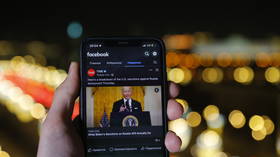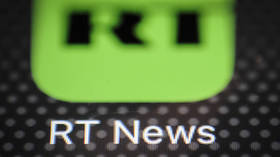Facebook restricts EU users’ access to RT and Sputnik

Social media behemoth Meta will restrict access to Russian state-funded media outlets on its Facebook and Instagram platforms throughout Europe, the company’s vice president Nick Clegg announced Monday, citing “requests from a number of governments.”
“Given the exceptional nature of the current situation, we will be restricting access to RT and Sputnik across the EU at this time,” Clegg tweeted, vowing to continue to “work closely” with governments on the matter.
The ban comes just days after Facebook barred Russian state-supported media companies from monetizing on its platform anywhere in the world, citing the attack on Ukraine and declining a request by Russian authorities to discontinue the deployment of biased fact-checking and warning labels on Ukraine-related content. Moscow responded by partially restricting access to the platform in Russia.
Facebook is one of several social networks that has pledged to target Russian media amid the ongoing offensive in Ukraine. On Sunday, European Commission chief Ursula von der Leyen vowed to block Russian state-owned media transmissions across the EU, announcing “we are developing tools to ban their toxic and harmful disinformation in Europe.”
EU officials have also spoken with the CEOs of Google and its subsidiary YouTube, requesting the social media platforms step up their efforts to block access to Russian state-funded media. Google and YouTube demonetized channels over the weekend, but the EU has insisted this is not sufficient, arguing for a ban on the content itself, which it has denounced as “war propaganda.”
Twitter, which already warns users when they are looking at RT and others, on Monday that it would add warning labels to tweets sharing content from such outlets, even if the poster is not a Russian state-owned media account.
Offending tweets now carry an orange exclamation point alerting the user that “This Tweet links to a Russia state-affiliated media website.” The new label will not be applied to RT, Sputnik or other media already carrying the “state-affiliated media” scarlet letter. However, tweets sharing content allegedly affiliated with the Russian state will not appear on the platform’s “top search” function.














